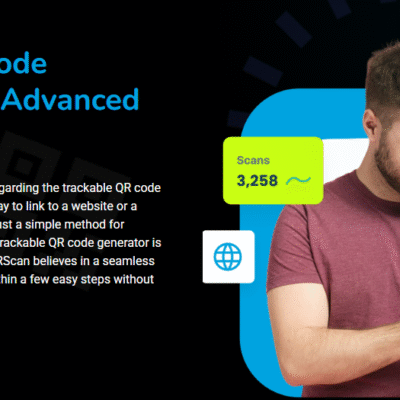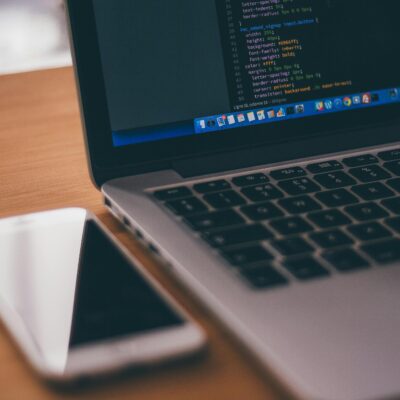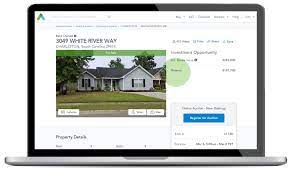The blockchain revolution is upon us, transforming industries from finance and supply chain to healthcare and entertainment. As businesses recognize the potential of decentralized, secure, and transparent systems, the demand for blockchain applications is soaring. But navigating the nascent blockchain landscape can be daunting, especially when it comes to selecting the right development partner.
Hiring a blockchain app company is a significant investment, and choosing the wrong one can lead to wasted resources, missed deadlines, and ultimately, a subpar product. To mitigate these risks, it’s crucial to ask the right questions upfront. This article provides a comprehensive guide to the essential questions you should ask before entrusting your blockchain project to a third-party developer.
Understanding Their Expertise and Experience
Before diving into project specifics, gauge the company’s foundational understanding of blockchain technology and their proven track record in the field.
- What specific blockchain technologies and platforms are you proficient in? (e.g., Ethereum, Hyperledger Fabric, Corda, Polkadot, Solana, Binance Smart Chain). Don’t settle for vague answers. Probe for the depth of their knowledge and experience within each platform. Are they actively contributing to the open-source community? Do they have experience building applications on various Layer-2 scaling solutions?
- Can you provide examples of similar blockchain projects you have successfully completed? Review case studies, request references, and, if possible, speak directly with previous clients. Focus on projects that align with your specific needs and industry. Pay attention to the complexity of the projects, the challenges faced, and the solutions implemented.
- What is the size and composition of your blockchain development team? Understand the team’s structure and expertise. Do they have blockchain architects, smart contract developers, front-end developers, security experts, and QA testers? Assess their individual skillsets and experience levels.
- What programming languages are your developers proficient in? (e.g., Solidity, Golang, Java, Python). The choice of programming language will depend on the chosen blockchain platform. Ensure the team has the necessary expertise in the relevant languages.
- Do you have expertise in different consensus mechanisms? (e.g., Proof-of-Work, Proof-of-Stake, Delegated Proof-of-Stake). Understanding their knowledge of consensus mechanisms is crucial as it directly impacts the security, scalability, and efficiency of your blockchain application.
- What is your understanding of decentralized finance (DeFi), non-fungible tokens (NFTs), and other relevant blockchain applications? Ensure they are well-versed in the latest trends and emerging use cases in the blockchain space. This demonstrates their commitment to staying ahead of the curve and provides assurance that they can innovate and adapt to the evolving landscape.
- Do you have experience integrating blockchain solutions with existing legacy systems? Integration is often a complex and critical aspect of blockchain adoption. Assess their experience and approach to seamlessly integrating blockchain technology into your existing infrastructure.
- How do you stay up-to-date with the latest developments and security vulnerabilities in the blockchain space? The blockchain landscape is constantly evolving. Ensure the company has a robust process for continuous learning, research, and security auditing to mitigate risks and stay ahead of emerging threats.
Delving into Project Methodology and Development Process
Understanding the company’s approach to project management, development methodologies, and quality assurance is crucial for ensuring a smooth and successful implementation.
- What is your project management methodology? (e.g., Agile, Waterfall, Scrum). Agile methodologies are generally preferred for blockchain projects due to their flexibility and iterative nature. Understand how they manage sprints, communicate progress, and handle changes.
- What steps do you take to understand our specific business needs and requirements? A thorough discovery phase is essential to define project scope, objectives, and deliverables. Inquire about their approach to gathering requirements, conducting workshops, and creating detailed specifications.
- What is your approach to smart contract development and security auditing? Smart contracts are the backbone of many blockchain applications. Understand their development process, including coding standards, testing procedures, and security audits. Do they use formal verification methods? Do they engage third-party security auditors?
- What testing frameworks and tools do you utilize? Robust testing is crucial for ensuring the reliability and security of your blockchain application. Understand their testing methodologies, including unit testing, integration testing, and security testing.
- What is your approach to handling version control and code repositories? Proper version control is essential for collaborative development and managing code changes. Ensure they use a reputable version control system like Git and have a well-defined branching strategy.
- How do you ensure the scalability and performance of the blockchain application? Scalability is a critical challenge for many blockchain applications. Understand their approach to optimizing performance and ensuring the application can handle increasing transaction volumes. Do they have experience with Layer-2 scaling solutions?
- What is your communication plan and how often will we receive updates on project progress? Clear and consistent communication is vital for a successful project. Establish clear communication channels and frequency of updates to ensure transparency and proactive problem-solving.
- What is your process for handling bug fixes and ongoing maintenance after launch? Ongoing maintenance and support are crucial for the long-term success of your blockchain application. Understand their service level agreement (SLA) and their process for handling bug fixes, updates, and security patches.
Addressing Security and Compliance Concerns
Security is paramount in the blockchain world, and regulatory compliance is becoming increasingly important.
- What security measures do you employ to protect our blockchain application from attacks? Understanding their security protocols, including vulnerability assessments, penetration testing, and incident response plans, is critical. Do they follow industry best practices for secure coding?
- Do you have experience with blockchain security audits? Security audits are essential for identifying and mitigating potential vulnerabilities. Ensure they have a process for conducting regular security audits, both during development and after launch.
- What is your data privacy and protection policy? Blockchain applications often handle sensitive data. Understand their data privacy policies and procedures, including compliance with relevant regulations like GDPR and CCPA.
- Do you have experience complying with relevant regulations and industry standards? (e.g., KYC/AML regulations, data privacy laws). Compliance is crucial for many blockchain applications, especially in regulated industries. Ensure they have experience navigating the regulatory landscape and implementing necessary compliance measures.
- How do you handle key management and secure storage of cryptographic keys? Secure key management is crucial for protecting access to your blockchain assets. Understand their approach to key generation, storage, and backup.
- Do you have a disaster recovery plan in place in case of a security breach or system failure? A comprehensive disaster recovery plan is essential for minimizing downtime and ensuring business continuity in the event of a security incident.
Evaluating Cost and Contractual Agreements
Understanding the cost structure, payment terms, and contractual obligations is crucial for avoiding surprises and ensuring a fair and transparent relationship.
- What is your pricing model? (e.g., fixed price, time and materials, value-based pricing). Understand the pros and cons of each model and choose the one that best aligns with your project requirements and budget.
- Can you provide a detailed breakdown of the project costs? Ensure the proposal includes a clear breakdown of all costs, including development fees, infrastructure costs, testing fees, and any other associated expenses.
- What are your payment terms and milestones? Establish clear payment terms and milestones to ensure that payments are tied to tangible progress and deliverables.
- What are your intellectual property rights policies? Clarify who owns the intellectual property rights to the code and any other deliverables created during the project.
- What are the termination clauses in the contract? Understand the conditions under which you can terminate the contract and the associated penalties or fees.
- Do you have insurance coverage for professional liability and cyber security risks? Insurance coverage can provide protection against potential financial losses resulting from errors, omissions, or security breaches.
- What is your dispute resolution process? Establish a clear process for resolving disputes that may arise during the project.
Gauging Long-Term Vision and Support
Consider the company’s long-term vision, their commitment to ongoing support, and their ability to adapt to the evolving blockchain landscape.
- What is your long-term vision for blockchain development? Understanding their long-term vision can provide insights into their commitment to the technology and their ability to adapt to future trends.
- What kind of ongoing support and maintenance do you offer after the project is completed? Ensure they provide comprehensive support and maintenance services to address bug fixes, security updates, and ongoing enhancements.
- Do you offer training and documentation to help our team understand and manage the blockchain application? Proper training and documentation are essential for empowering your team to effectively manage and maintain the application in the long run.
- How do you plan to adapt to the evolving blockchain landscape and emerging technologies? The blockchain space is constantly evolving. Ensure the company is committed to continuous learning and adaptation to remain at the forefront of the industry.
- Do you have a community engagement strategy? A company that actively participates in the blockchain community is more likely to be up-to-date with the latest trends and best practices.
Conclusion
Choosing the right blockchain app company is a critical decision that can significantly impact the success of your blockchain project. By asking the right questions upfront, you can gain a thorough understanding of their expertise, methodologies, security protocols, and contractual obligations.
This comprehensive list of questions serves as a starting point for your due diligence process. Remember to tailor these questions to your specific project requirements and business needs. By carefully evaluating potential partners, you can confidently navigate the blockchain maze and find the right company to help you unlock the transformative potential of this groundbreaking technology. Good luck.





